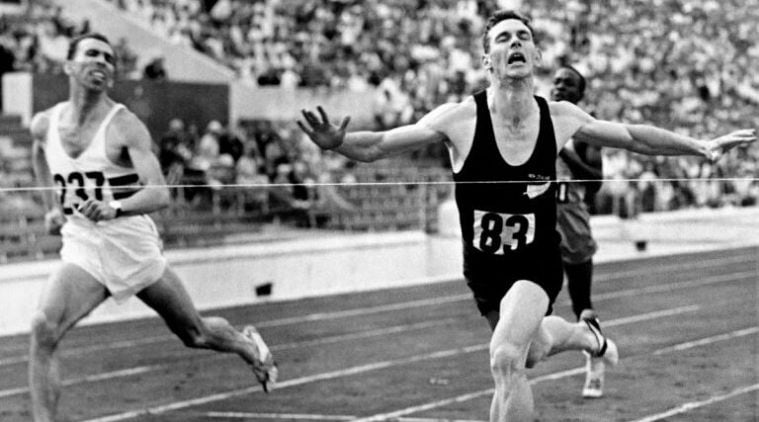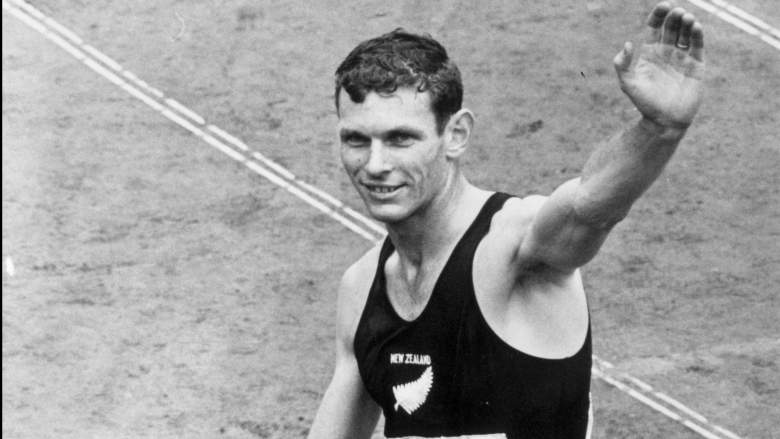Peter Snell, a name synonymous with athletic excellence, remains one of New Zealand’s most celebrated sports figures. Born on December 17, 1938, in Opunake, Taranaki, Snell’s journey from a small-town boy to an international icon is a testament to his extraordinary talent and unwavering dedication. His achievements in middle-distance running have left an indelible mark on global athletics, earning him numerous accolades and a permanent place in the annals of sporting history.
Snell’s athletic promise began to emerge during his time at Mount Albert Grammar School in Auckland, where his talent for running was first recognized. He quickly advanced to higher levels of competition, setting national records and winning school championships. However, it was during his studies at the University of Auckland—where he pursued physics and chemistry—that his athletic prowess truly began to flourish.
Under the guidance of legendary coach Arthur Lydiard, Snell honed the stamina and technique that would carry him to greatness. Lydiard’s revolutionary training methods—based on high-mileage endurance runs combined with rigorous interval work—played a pivotal role in Snell’s development. Their partnership would go on to become one of the most successful coach-athlete collaborations in the history of athletics.

Snell’s first breakthrough came at the 1960 Rome Olympics, where he won gold in the 800 meters with a time of 1:46.3, setting a new Olympic record. This victory marked the beginning of a golden era in Snell’s career. At the 1962 Commonwealth Games in Perth, he triumphed again, winning gold in both the 880 yards and the mile—further cementing his place as one of the world’s premier middle-distance runners.
His crowning moment came at the 1964 Tokyo Olympics. In a display of unmatched endurance and tactical brilliance, Snell claimed gold in both the 800 meters and the 1500 meters, becoming the only male athlete since 1920 to achieve that double at the same Games. His time of 3:38.1 in the 1500 meters was not a world record, but the feat itself remains one of the most iconic in Olympic history. His dominance across distances was unparalleled.

Beyond his Olympic triumphs, Snell broke world records in the 800 meters, the 880 yards, the 1000 meters, and the mile, showcasing his versatility and commanding presence on the track. His legendary rivalries with contemporaries such as Herb Elliott and Jim Ryun added further drama to the sport and drew global attention to middle-distance running.
In 1965, Snell retired from competitive athletics at the peak of his career—a decision that surprised many but underscored his quiet determination to explore new frontiers. He shifted focus to academia, earning a Ph.D. in Exercise Physiology from Washington State University. He later served as a research scientist at the University of Texas Southwestern Medical Center in Dallas, conducting pioneering research on cardiovascular fitness and the physiological impact of exercise. His scientific contributions were as profound as his sporting ones, reflecting a lifelong dedication to the pursuit of human excellence.

Over the years, Snell received numerous honors in recognition of his legacy. He was inducted into the New Zealand Sports Hall of Fame and the International Association of Athletics Federations (IAAF) Hall of Fame. The International Olympic Committee named him among the 25 greatest Olympians of the 20th century. In 2002, he was appointed to the Order of New Zealand, the country’s highest honor, and in 2020, he was posthumously made a Knight Companion of the New Zealand Order of Merit.
But beyond the medals and titles, Snell’s legacy lies in his character—his humility, sportsmanship, and relentless pursuit of excellence. He inspired generations of New Zealanders and athletes around the world, proving that with the right mindset, mentorship, and training, greatness is within reach. His partnership with Lydiard forever changed how athletes prepare, with their principles still shaping endurance training globally.
Peter Snell’s impact on the sporting world—and beyond—is immeasurable. His life was a rare blend of Olympic glory and scientific inquiry, athletic dominance and intellectual depth. As we remember his remarkable journey, we are reminded of the heights the human spirit can reach when fueled by discipline, courage, and purpose. Peter Snell will forever be remembered as a titan of New Zealand sport and a global icon of athletic and intellectual brilliance.






